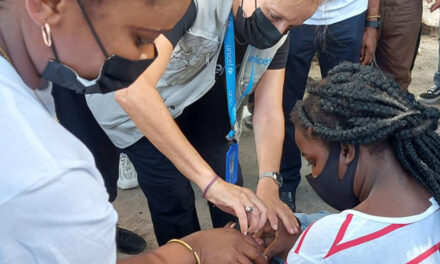Gurugram, June 14, 2024 – Experts highlighted the importance of a comprehensive national blood policy, emphasizing collaboration among all stakeholders to ensure the safety and availability of blood for patients in need. The call to action was made during World Blood Donor Day, an annual event observed on June 14 to honor and thank voluntary blood donors who selflessly give the gift of life.
Rahul Bhargava, Principal Director & Chief of Bone Marrow Transplant (BMT) at Fortis Memorial Research Institute in Gurugram, stressed the importance of investing in blood bank infrastructure and advanced testing methods. “Investing in blood bank infrastructure and advanced testing allows us to catch potential issues early on. That’s why robust government initiatives are crucial. Encouraging voluntary donation and stricter donor screening tests are vital for blood donation and access to safe blood,” Bhargava told IANS.
According to the World Health Organization (WHO), a national blood system should be governed by a national blood policy and legislative framework to promote uniform implementation of standards and ensure consistency in the quality and safety of blood and blood products. In 2018, 73% of reporting countries (125 out of 171) had a national blood policy, and 66% (113 out of 171) had specific legislation covering the safety and quality of blood transfusion, as per WHO data.
Anubha Taneja Mukherjee, Member Secretary of the Thalassemia Patient Advocacy Group, urged the government to consolidate the regulatory framework for blood services under a single legislation, advocating for the establishment of a dedicated blood law. “The government should urgently consider consolidating the regulatory framework for blood tender services under a single legislation – blood law. Blood should be brought out of the Drugs and Cosmetics Act, and the regulator should look much beyond the licensing of blood banks,” said Mukherjee.
Experts also highlighted the importance of screening for infectious agents such as malaria, HIV, hepatitis B and C, and syphilis to prevent transfusion-transmitted infections (TTIs). Shruti Kamdi, Consultant Transfusion Medicine at SRCC Children’s Hospital in Mumbai, emphasized the significance of performing blood typing, antibody screening, and crossmatching to ensure immunological compatibility, thereby preventing hemolytic and other transfusion reactions. “These measures safeguard patients, particularly those with compromised immune systems or requiring multiple transfusions, from potentially life-threatening complications,” said Kamdi.
She further noted that comprehensive testing and strict adherence to safety standards are fundamental in maintaining a reliable blood supply and ensuring the efficacy of transfusion therapy. “Comprehensive testing and strict adherence to safety standards are fundamental in maintaining a reliable blood supply and ensuring the efficacy of transfusion therapy,” she added.
World Blood Donor Day serves as a reminder of the critical role that blood donors play in saving lives and the importance of a well-structured national blood policy to support safe and effective blood transfusion practices.












